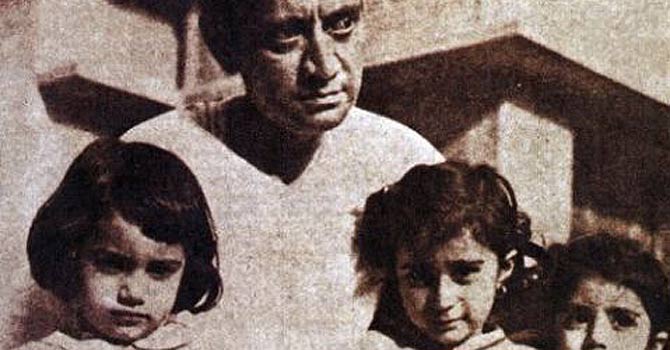May 11, 2012 marks Sadat Hasan Manto's birth centenary. To Celebrate the occasion Books&Authors invited some of the most well-known names of Urdu literature to share their thoughts on a writer Zaheda Hina terms the “creative conscience of the subcontinent”.
Panelists share their thoughts on Manto’s legacy.
Fahmida Riaz (FR) Good writers are relevant in all times. Who can say that Chekhov or Balzac are not relevant today? They delve deep into human psychology and shed light on universal truths in our social relations and in human behaviour. Manto is especially relevant today because our society is once again plunged into sectarian and communal killings, a malaise against which Manto wrote so vibrantly, exposing the inherent greed and lust for blood concealed under seemingly pious slogans.
Manto was an iconoclast. He smashed many idols people secretly worship, idols of their own supremacy, their religion, their sect, their way of life, to the extent that they want to crush the other. Manto always had room for “the other”. He also took pleasure in pointing out that virtue exists where we least expect it. In a way, he was a strong believer in the innate goodness of the human being. Today we are on the verge of losing that faith.
Hasan Manzar(HM) I believe he is as relevant as other creative artists who leave behind their influence and create a way for those coming after them. New readers start to absorb their work, like Manto himself read Premchand, Chekhov and so on. Similarly, those writing in Manto’s times and after learnt a lot from him. A lot of writers tried to adopt his style but could not.
So he was definitely relevant. The public had become immune to what was happening around them. In such a situation we need writers who can write about the times, writers like Premchand who wrote the story “Juloos”; writers like Manto could write about the riots the way he did.
This is how we will learn to write about our times. When we hear about the brutality against young girls and boys, abandoned bodies, and no one is brought to the book... For instance, I have written on these topics but I would not have if this tradition had not existed. The injustices of the times will prompt new writers to address these themes. They will say that if those before them could do it why can’t they.
The last story Manto was working on was based on an incident of a woman who had been found at a bus stop in Gujrat. She had been raped and apparently people from the bus company were involved. I don’t know what sort of story that would have turned into. But the point is that Manto’s eyes were open till the end. He had been observing constantly.
Zaheda Hina (ZH) In my opinion, in the serious moral, political, social and cultural crisis and collapse we find ourselves in today, the way we have been assailed by extremism and fundamentalism, and the manner in which we are cowered by terrorists, the importance of Manto’s writings has increased manifold.
Manto wasn’t only a short story writer, he was a visionary. His writings after he moved to Pakistan reflect how keenly he was analysing the situation. While reading his article “Allah ka Bara Fazl Hai,” one feels as if he could see the future. In it Manto describes how the Mamlukat-i-Khuda Dad has got rid of music, painting, journalism, science and people are in peace. It reminds us of the rule of General Ziaul Haq. It ends in the arrest of the man who was roaming in the streets shouting “I don’t want to live in a country where there is God but no Satan.”
He had a profound understanding of world politics which is reflected in his letters to Uncle Sam. He writes, “If this sect of Mullahs gets armed in the American style then the Soviet Union will have to leave with bag and baggage” and “the real purpose of military aid as far as I understand is to arm these Mullahs”. Don’t all these writings point towards the proxy war we fought against the Soviet Union? His phrase, “Till the time Pakistan needs wheat, I can’t dare to offend you,” reminds us of all those US officials who visit us regularly to give us a piece of their mind.
Many of his writings, if we remove the date, appear to have been written today. It seems highly unlikely that a fearless and uncompromising writer such as Manto could rise again among us. So it is only appropriate that we republish his writings, the least homage we could pay to his memory.














































Dear visitor, the comments section is undergoing an overhaul and will return soon.